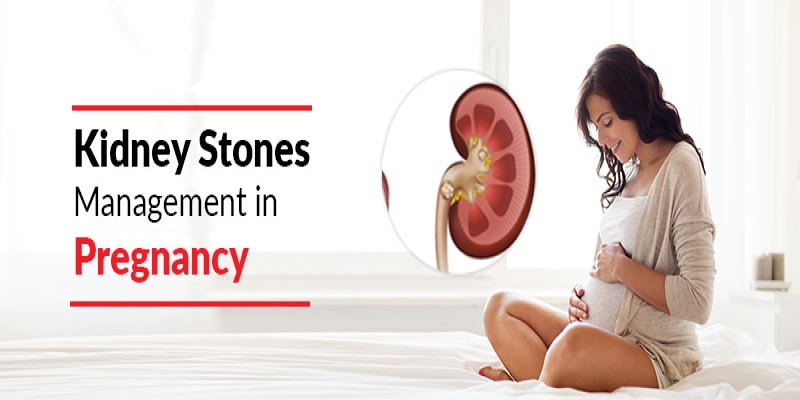Kidney Stone Management in Pregnancy
2019-10-09 / RG STONE HOSPITAL / Urinary / Kidney Stone

Urolithiasis (urinary stone) is the most common cause of non-gynae abdominal pain in pregnant women. This is, unfortunately, more likely to happen in pregnant women than when not pregnant. This occurs in almost 1 in 1500 pregnant women. Kidney stones occur more commonly in ureter than in kidney.
Approximately 80-90% urinary stones are diagnosed after the first trimester gets over. Kidney stone in pregnancy is often a diagnostic and treating challenge; reasons include adverse effects of anaesthesia, radiation, and procedure.
The physiological changes that occur in the woman’s body during pregnancy may affect the urinary tract leading to increased chances of problems with already existing stone(s) or can increase the chance of formation of new stones.
During the later part of pregnancy, the size of the uterus can restrict the urine outflow. The ureters get dilated in pregnancy and may not eliminate urine as efficiently, and this may lead to hydronephrosis (swelling of the kidney). The ureters increase in size due to increased renal volumes during pregnancy.
The collecting system of the kidneys loses its power to contract, resulting in stagnant urine, thereby increasing the chances of stone or infection. These changes usually occur in the second half of the pregnancy and get over after delivery. Also, the biochemical changes occurring during pregnancy can cause the formation of kidney stones. The lack of fluid intake may lead to kidney stone formation, during this time. This is why pregnant women should consume plenty of fluids.
Most of the stones (70-80%) pass spontaneously with conservative treatment. However, if the stone does not pass, it may initiate premature labor, produce intractable pain, cause urinary tract infection or even sepsis, or interfere with the progress of normal labor. Pregnant women who experience kidney stones for the first time equate it with labor pain.
Investigating renal stones in the state of pregnancy is not an easy task. X-rays are absolutely contraindicated as these are more of a risk to the growing foetus. Renal ultrasound is the first-line screening test for urinary stones in pregnant females. Ultrasound may not always show the presence of kidney stones. Urine test is to be performed, but not all kidney stone problems will show up in urine.
Intravenous pyelography (IVP) or CT scan is done in complex cases only during pregnancy (best avoided). Ideally, no ionizing radiation is to be used in the first half of pregnancy. MRI has limited utility in such cases. Nuclear renography is to check for functional studies. Obtaining the imaging in order to treat the stone is justified in certain cases with lower dose protocols.
Treatment of kidney stones during pregnancy ranges from conservative management to more invasive measuring kidney stones including stenting, ureterorenoscopy, and percutaneous nephrolithotomy - PCNL). Lithotripsy (ESWL) is a big no during pregnancy. Surgical options are highly limited during this time. Any handling in the pelvis, ureter or kidney can result in premature labor.
Prevention of urinary stones during pregnancy is the best thing. Pregnant females should drink plenty of fluids and keep the body well hydrated. Also, high oxalate foods such as nuts, chocolate, dark green leafy vegetables, and berries should be best avoided.
The females who have had kidney stones earlier are at higher risk of getting them again once pregnant. Prophylactic treatment should even be given to the females who are planning pregnancy.
With correct management, the treatment outcome for both mother and baby is good.
By RG Hospital
Categories
Hernia Repair
Appendicitis
Piles
Urological Treatment
Hernia treatment
Enlarged Prostate (BPH)
Gall Bladder Stone
Urinary / Kidney Stone
Vitamins
Indian Health Care System
Exercise
Obesity
Female Urinary Incontinence
Single Incision Laparoscopic Surgery (SILS)
Kidney Cancer
Bladder Cancer
Ovarian cancer
Nephrology
Bariatric Surgery
Kidney Function Test
Female Urology
Radiation Therapy
Alcoholic Fatty Liver
Liver disease
Gastroenterology
Kidney Disease

